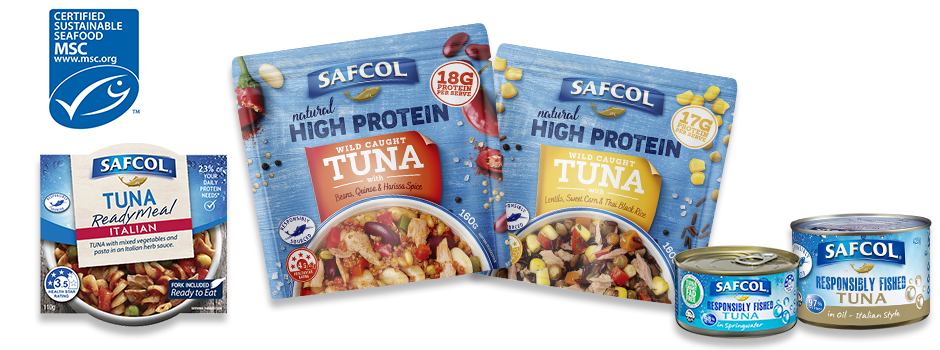Omega-3 Boosts Muscle Function Throughout Life
Posted on : June 13, 2023
by Ashleigh Feltham Accredited Practising Dietitian and Accredited Nutritionist

Omega-3 Boosts Muscle Function Throughout Life
Omega-3 fat offers many health benefits to vital organs, like the brain and the heart. Exciting new research has found an additional reason to boost the omega-3 content in your diet. Omega-3 may also help promote muscular function as we age.
Preserving muscle mass as you get older is an essential component of maintaining function, quality of life, and, ultimately, longevity. As we age, we gradually lose muscle mass, it is known as sarcopenia. This results in loss of independence, physical disability, increased risk of falls, lower quality of life, and an overall increased risk of disease and death.
As an example, the 70-79 age group loses approximately one percent of their lean muscle mass each year. The average yearly loss in muscle strength is estimated at 2.65-4.12% each year, depending on ethnicity and gender.
Exercise is the first line of action to maintain muscle mass. Unfortunately, there is a reduction in the body’s ability to create muscle from exercise and nutrition. This is why as we age, protein requirements increase; the body’s ability to use protein declines with time. We need more protein to stimulate the same response as in our youth to create muscle mass.
With time, chronic, low-grade inflammation in the body increases; this is one of the contributing factors towards disease and ultimately death. This is where the importance of giving your body adequate omega-3 fats becomes increasingly important. Omega-3 has potent anti-inflammatory properties that may assist in reducing chronic, low-grade inflammation.
New research provides insight into another potential benefit of omega-3 fat: to promote increased muscular strength.
This randomised control trial occurred over six months on 63 healthy adults aged 65-85 years. Participants were randomly assigned 3.9g a day of omega-3 or a placebo twice a day, at breakfast and dinner. The omega-3 fat tablets were made up of approximately 675mg of eicosapentaenoic acid (EPA) and approximately 300mg of docosahexaenoic acid (DHA). The placebo was 1,000mg of corn oil.
After six months, the omega-3 participants showed a significant increase in muscular strength compared with the placebo group, which did not show this effect. The positive increase in muscular strength was predicted to be due to the increase in muscle quality.
Omega-3 is an essential fat. This means that the body cannot create it and needs to obtain it through diet. While it may seem easy to achieve the right omega-3 levels through supplements, a food first approach is recommended. Seafood is a rich source of omega-3, especially fatty fish varieties such as sardines and salmon.
Fatty seafood varieties are not only a rich source of omega-3, but they also provide the body with a good complete protein source. A complete protein gives your body all the essential amino acids, or building blocks, that your body needs to make a protein. One of the essential amino acids known to help stimulate muscle synthesis is leucine. This amino acid is found in good amounts in fish such as sardines. One cup of sardines will give your body around three grams of leucine. Two to three grams of leucine per meal is considered an optimal amount.
It is recommended for health to include seafood two to three times a week. A serving is 100g of cooked seafood.

Take home message
While we can not stop the aging process, we can control our quality of life as we age. Including exercise, specifically resistance training, as a lifestyle habit as well as meeting the recommended omega-3 dietary intake each day are two of the best strategies that can help you optimise your quality of life throughout your lifespan.

References:
- Kunz HE, Michie KL, Gries KJ, Zhang X, Ryan ZC, Lanza IR. A Randomized Trial of the Effects of Dietary n3-PUFAs on Skeletal Muscle Function and Acute Exercise Response in Healthy Older Adults. Nutrients. 2022; 14(17):3537.
- Goodpaster, B.H.; Park, S.W.; Harris, T.B.; Kritchevsky, S.B.; Nevitt, M.; Schwartz, A.V.; Simonsick, E.M.; Tylavsky, F.A.; Visser, M.; Newman, A.B.; et al. The Loss of Skeletal Muscle Strength, Mass, and Quality in Older Adults: The Health, Aging and Body Composition Study. J. Gerontol. A Biol. Sci. Med. Sci. 2006, 61, 1059–1064



